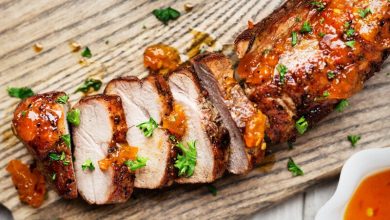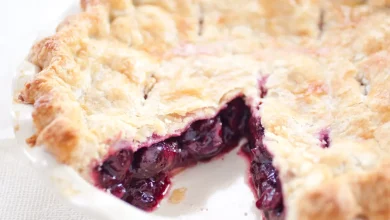🧁 Muffins Recipe 🧁
History: Muffins have a long and diverse history. They trace their origins back to early 18th century Britain, where they were a type of quick bread often baked in individual molds. The term “muffin” is thought to have originated from the French word “moufflet,” which means soft bread. In the United States, muffins evolved into the sweet, cake-like treats we know today during the 19th century.
Components:
-
Dry Ingredients:
- 2 cups all-purpose flour
- 1/2 cup sugar
- 2 tsp baking powder
- 1/2 tsp baking soda
- 1/2 tsp salt
-
Wet Ingredients:
- 2 large eggs
- 1 cup buttermilk
- 1/2 cup unsalted butter, melted
- 1 tsp vanilla extract
-
Optional Add-Ins:
- 1 cup of your favorite ingredients like chocolate chips, blueberries, or nuts
Steps to Prepare:
-
Preheat the Oven: Preheat your oven to 375°F (190°C). Line a muffin tin with paper liners or grease it.
-
Mix Dry Ingredients: In a large mixing bowl, whisk together the flour, sugar, baking powder, baking soda, and salt.
-
Combine Wet Ingredients: In a separate bowl, beat the eggs, then add the buttermilk, melted butter, and vanilla extract. Mix well.
-
Combine Wet and Dry: Pour the wet ingredients into the dry ingredients. Stir until just combined. Be careful not to overmix; a few lumps are okay.
-
Add Optional Ingredients: If you’re using any additional ingredients like chocolate chips or blueberries, gently fold them into the batter.
-
Fill the Muffin Cups: Spoon the batter into the muffin cups, filling each about two-thirds full.
-
Bake: Place the muffin tin in the preheated oven and bake for about 18-20 minutes, or until a toothpick inserted into the center of a muffin comes out clean.
-
Cool: Allow the muffins to cool in the tin for 5 minutes, then transfer them to a wire rack to cool completely.
Time Needed:
- Preparation: 15 minutes
- Baking: 18-20 minutes
- Cooling: 10 minutes
Total Time: Approximately 45 minutes
Enjoy your homemade muffins! 🥮😊
Here are the nutrition facts and health information for a standard homemade muffin (without optional add-ins like chocolate chips or nuts):
Nutrition Facts (Per Serving, approximately 1 muffin):
- Calories: Approximately 220-250 calories
- Total Fat: 9-11 grams
- Saturated Fat: 5-6 grams
- Cholesterol: 45-55 mg
- Sodium: 300-400 mg
- Total Carbohydrates: 31-35 grams
- Dietary Fiber: 1-2 grams
- Sugars: 10-15 grams
- Protein: 4-5 grams
Health Information:
-
Moderate Caloric Content: Muffins can vary in calories depending on the recipe and size. They are generally a moderately calorie-dense snack or breakfast option.
-
Moderate Fat Content: Muffins typically contain moderate amounts of fat, with some of it being saturated fat from butter. Using healthier fats like canola oil can reduce saturated fat content.
-
Cholesterol: Muffins contain cholesterol from ingredients like eggs and butter. However, these levels are not excessively high.
-
Sodium: The sodium content in muffins can vary. It’s important to be mindful of sodium intake, especially if you have high blood pressure or other sodium-sensitive conditions.
-
Carbohydrates: Muffins are rich in carbohydrates, primarily from flour and sugar. This can provide a quick source of energy but may cause blood sugar spikes in some individuals.
-
Fiber: Muffins may have limited dietary fiber content. Adding whole wheat flour or oats can increase fiber and improve digestive health.
-
Protein: Muffins contain a small amount of protein, primarily from eggs and dairy. This can contribute to overall protein intake but should not be relied upon as a primary protein source.
-
Sugar: Muffins can be relatively high in sugar, contributing to their sweet taste. Reducing sugar or using natural sweeteners like honey can make them a healthier option.
Note: To make muffins healthier, consider using whole wheat flour, reducing sugar, and incorporating healthier fats. You can also add fruits, nuts, or seeds for extra nutrients and fiber. Individual nutritional values may vary based on specific recipes and ingredient choices.




